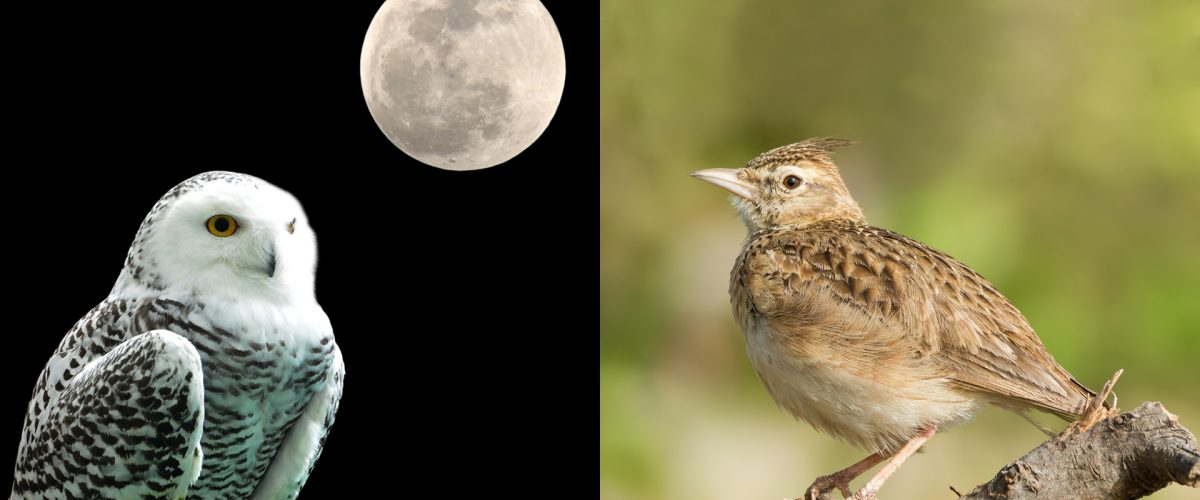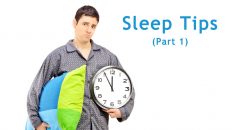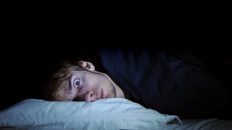By Virginia Gurley, MD, MPH
MB (Marc Braman, MD, MPH):
Thank you for joining us Dr. Gurley.
VG (Virginia Gurley, MD, MPH):
Thank you, Dr. Braman.
MB:
So, this session we’re going to talk about are you an owl or a lark, and why that matters. What is an owl and what is a lark?
VG:
Well, so an owl is a kind of common-use term for someone whose biologic clock tends to be longer than 24 hours, and how people experience being an owl is that they tend to stay up later at night and they often don’t get sleepy until late at night, and along with that, they often tend to wake up later in the morning. And a lark is pretty much the opposite. They tend to wake up early and they tend to get sleepy in the evening early, and so their clock in their body also tends to be shorter. And so, this is sometimes also called ‘eveningness’ and ‘morningness’ as an expression of whether or not someone’s body clock tends to be longer than 24 hours, meaning being an owl, or shorter than 24 hours, meaning being like a lark.
MB:
Okay. So, one way or another, we usually tend to have an inbuilt period that’s either shorter than 24 hours or longer than 24 hours and that has effects on us, right?
VG:
Yes.
MB:
So, why does this matter?
VG:
Well, in our modern society where many of us spend most of our waking time indoors where the artificial light is much dimmer than natural sunlight and then indoors in the evening where we have a lot more bright light at night than our bodies are used to, we don’t have the timing of the sun, those signals to reset the clock. And the reason this is really important is how you approach the use of your exposure to light as well as the timing of your meals to help you improve your sleep or even to address problems with sleep like having difficulty falling asleep, or having difficulty waking up is really different depending on if you tend to be a morning person, like a lark, or an evening person, like an owl.
MB:
Very good. So, what can we do to improve our sleep if we’re an owl or to improve it if we’re a lark? How does that work differently?
VG:
Well, if we’re an owl, then we’re going to be especially sensitive to bright light at night, and even more so if we don’t get much bright natural light during the day. So, bright light at night, especially within the 90 minute period before the time that you ideally want to go to bed and go to sleep is going to have a much more powerful impact on disrupting your sleep and tending to exaggerate your tendency to stay up too late and consequently having difficulty waking up in the morning. And then if you’re a lark, the tendency to wake up early can be a problem if you’re waking up too early, and people who wake up early tend to then get exposed to light in their environment that reinforces that early waking up. So, if you’re waking up earlier than you want to, you should really avoid being exposed to light until you’re around the time that you ideally want to wake up. And then the same thing in the evening, it can be helpful to keep the lights on, the bright lights on, in the evening until about an hour before the time that you want to go to sleep so that you don’t start getting sleepy too early.
MB:
Okay. So, basically whatever direction we’re off on the 24 hour mark, we want to more or less counteract?
VG:
Correct.
MB:
And in some of our other videos, we’ve talked about the timing of our food, our meals, and how that affects our sleep. What does this mean for us as larks or owls?
VG:
Yep. That’s an important question, and so for larks, people who wake up early, they tend to have breakfast shortly thereafter, have a cup of coffee or a cup of tea, and that eating shortly after waking up is really important for setting your body’s rhythm for your wake up time. And so especially again if you’re a lark that’s waking up too early, earlier than you want to be getting out of bed, then avoiding eating breakfast or food and avoiding stimulating beverages until about a half hour after the time that you ideally would like to wake up is best. And then also with dinner time, a lot of larks will tend to eat an earlier dinner, and you don’t want to eat a real early dinner. If you find yourself falling asleep too early in the evening, moving your dinner time a little bit later in the evening can actually help.
MB:
Excellent.
VG:
Then with owls, again, it’s kind of the opposite. So, owls often have trouble waking up in the morning. They’re groggy. It’s a common association for people who tend to be owls to skip breakfast, and actually it’s breakfast, your body’s anticipation of food at breakfast time, that helps you wake up. And so, making sure that you eat a good breakfast, a substantial breakfast, and within a half an hour to 45 minutes of your ideal wakeup time can really help a lot. And then likewise on the dinner end of things, not eating dinner too late making sure that you’ve completed your dinner meal at least two hours before your ideal bedtime can really make a difference.
MB:
Excellent. So, it sounds like again what we want to do is push ourselves towards that 24-hour mark from our tendencies to be off of it in one direction or the other.
VG:
That’s right. Yep. And if we could use the sun’s natural signals to help us, that would be great. But a lot of us in our modern lifestyle, we just don’t get exposed to the early morning sun, the sunset, and bright sun during the middle of the day. So, this is a good way to work with our built environment.
MB:
Excellent. Thank you so much, Dr. Gurley.
VG:
Thank you, Dr. Braman.
Entrainment of the human circadian system by light. Duffy JF, Wright KP Jr. J Biol Rhythms. 2005 Aug;20(4):326-38. doi: 10.1177/0748730405277983.
Effect of Light on Human Circadian Physiology. Duffy JF, Czeisler CA. Sleep medicine clinics. 2009;4(2):165-177. doi:10.1016/j.jsmc.2009.01.004.





